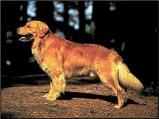
This is a placeholder text
Group text
by Hundmutter on 20 February 2019 - 16:02
by BRADY BEE on 20 February 2019 - 17:02
by Xeph on 20 February 2019 - 19:02
Hydrolyzed diets work. They are studied and tested. It’s a myth that vets don’t get nutrition education and my vet friends are sick of hearing this (many of them are breeders).
Boutique foods seem to be causing DCM, but foods like ProPlan, which actually have science and *feeding trials* behind them do not
My dogs are currently on PP Sport and are doing great.
The vet prescribed this food for your dog because it can and DOES help. The ingredients aren’t ideal because of what we’ve been taught. That doesn’t mean it is not useful to you at this time for the issues your dog has.
by BRADY BEE on 20 February 2019 - 19:02
by Prager on 21 February 2019 - 01:02
Protein hydrolysis can be used to modify the allergenic properties of proteins and is often achieved by boiling protein in strong acid or strong base.( Yuck!!) What happens by hydrolyzation is that the protein is broken down to smaller by immune system not recognized protein chains and amino acids and peptide chains, thus limiting allegic threatd. Hydrolyzed protein is often used in the manufacturing process of certain specially formulated hypoallergenic dog foods for dogs and puppies that suffer from allergies caused by certain protein types. Hydrolyzation of protein also produces food taste enhancers like MSG.( yuck!!!) To me if the food looks like it was produced by Chevron or Dupont that means to stay away from it regardless of how shiny the bag is. IMO if the dog has allergies you can hydrolyze protein by soaking it in apple cider vinegar and boiling it. The other option is to find out by test to what protein the dog is allergic and not to feed it and otherwise to feed raw. Personally i think that granulated dog food may create allergies. Alegies are most likely caused by:
1. Wheat (wheat-based dry food, dental sticks, bread, pasta)
2. Processed Chicken or beef (and possibly all red meats, a result of the highly processed gunk used in dry food
3. Chemicals (all the stuff you can’t pronounce in the dry food ingredients but also neurotoxic chemical flea treatments, heavy wormers and needless annual boosters)
by astrovan2487 on 21 February 2019 - 03:02
No idea if the this test is worth it or not, I asked the regular vet and rehab vet about it and neither seemed to think much of it but had never really heard of it either.
by Hundmutter on 21 February 2019 - 08:02
by ZweiGSD on 21 February 2019 - 14:02
Some info on food allergies from Dr. Becker. If you scroll down it has a section on hydrolyzed food.
Very short article on it from Whole Dog Journal.
Dr. Jean Dodds is the founder of Nutriscan.
by astrovan2487 on 22 February 2019 - 01:02
by jillmissal on 23 February 2019 - 22:02
There's nothing wrong with corn in dog food. It's a myth that it is bad for dogs.
There is nothing wrong with that food. It or any other hydrolyzed protein food is a great bet for getting to the bottom of your dog's allergy issues. It has lower macronutrient ratios to make it more digestible. Honestly, I wish I could find those macro ratios in commercial food as I think dogs do better on them, but the marketing machine pushed by hysterical misinformation makes such a food impossible to find outside of expensive veterinary diets.
(One more time, there is no evidence whatsoever that raw food has any benefits and plenty of evidence that it has many risks and dangers. Do not let the opinions of a bunch of non-medical professionals sway your decision on this or convince you to try random supplements or endless rotations of foods your vet has not recommended. Please listen to your vet. Your dog will thank you. )
Contact information Disclaimer Privacy Statement Copyright Information Terms of Service Cookie policy ↑ Back to top




